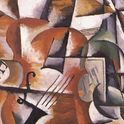Jihad and Death: The Global Appeal of Islamic State, by Olivier Roy (Hurst, £15.99)
Olivier Roy is one of the most interestingly provocative thinkers on modern jihadism. In this excellent short book, the French academic reiterates his argument that we are seeing not “the radicalisation of Islam but the Islamisation of radicalism.” Examining the profiles of more than 100 European jihadis, he finds a common thread is their isolation from traditional Islam. Radicalisation happens in prisons and gyms, rarely mosques. The ringleaders of the Paris attacks ran a bar. In contrast to his fellow French academic Gilles Kepel, Roy doesn’t think terrorists are continuing the violence of the anti-colonial struggle. Anti-Muslim prejudice is not a significant factor either, since radicals also think Muslims have no place in the west.
For Roy, it makes more sense to compare Islamic State (IS) with Maoists in the Cultural Revolution or Mexican drug gangs. It is postmodern rather than medieval: videogame culture melded with the fantasies of a revived caliphate. Its followers latch on to scary symbols such as burqas, swords and bloodthirsty religious quotations to validate their obsession with death. Like American school shooters, losers from the suburbs can achieve a twisted heroism by going out all guns blazing.
Some will find points of disagreement with Roy. For me he is too sanguine about the dangers of ultra-conservative Salafis. But what he does catch well is the sheer weirdness of IS—which is a large part of its appeal, he claims. That’s why policies such as banning headscarves are misguided. The more Islam is made to feel less mainstream, the more likely jihadists are to use it as a vehicle for their own ends.
Olivier Roy is one of the most interestingly provocative thinkers on modern jihadism. In this excellent short book, the French academic reiterates his argument that we are seeing not “the radicalisation of Islam but the Islamisation of radicalism.” Examining the profiles of more than 100 European jihadis, he finds a common thread is their isolation from traditional Islam. Radicalisation happens in prisons and gyms, rarely mosques. The ringleaders of the Paris attacks ran a bar. In contrast to his fellow French academic Gilles Kepel, Roy doesn’t think terrorists are continuing the violence of the anti-colonial struggle. Anti-Muslim prejudice is not a significant factor either, since radicals also think Muslims have no place in the west.
For Roy, it makes more sense to compare Islamic State (IS) with Maoists in the Cultural Revolution or Mexican drug gangs. It is postmodern rather than medieval: videogame culture melded with the fantasies of a revived caliphate. Its followers latch on to scary symbols such as burqas, swords and bloodthirsty religious quotations to validate their obsession with death. Like American school shooters, losers from the suburbs can achieve a twisted heroism by going out all guns blazing.
Some will find points of disagreement with Roy. For me he is too sanguine about the dangers of ultra-conservative Salafis. But what he does catch well is the sheer weirdness of IS—which is a large part of its appeal, he claims. That’s why policies such as banning headscarves are misguided. The more Islam is made to feel less mainstream, the more likely jihadists are to use it as a vehicle for their own ends.












